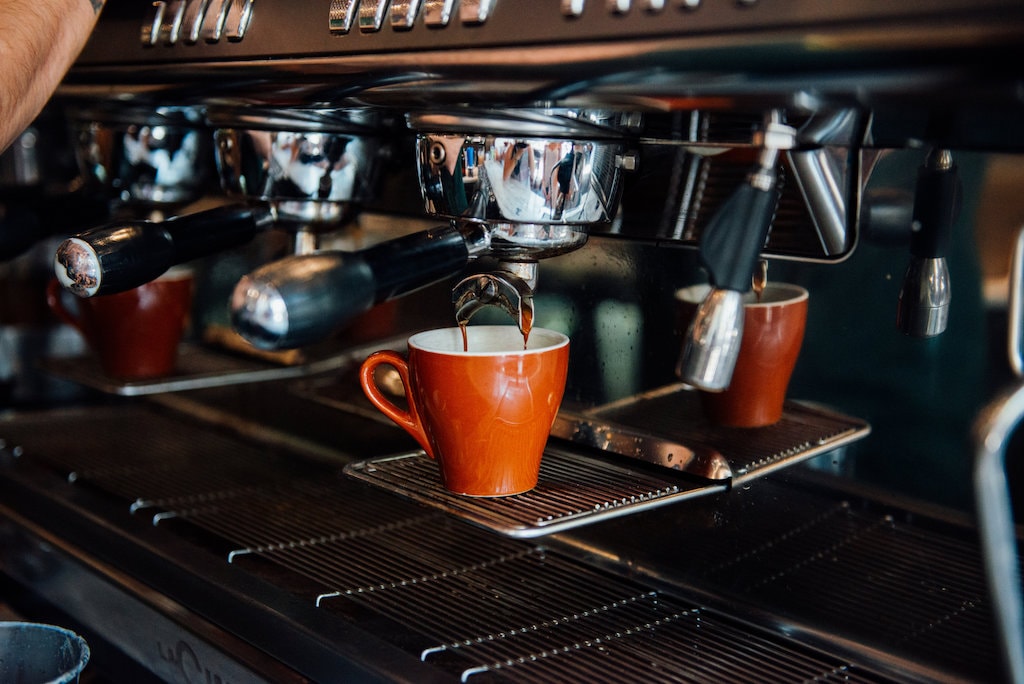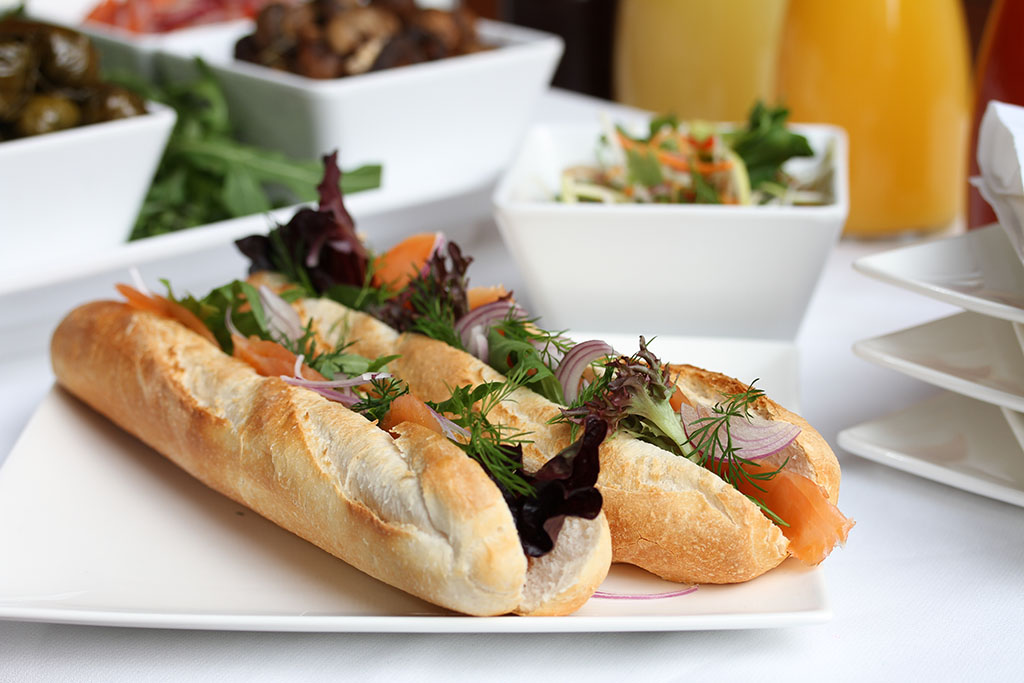Why would you want to open a coffee shop or cafe ?
Ultimately, the decision to open a coffee shop or cafe depends on individual interests, goals, and motivations. Whether driven by a passion for coffee, a desire for entrepreneurship, or a love of community, owning a cafe can be a rewarding endeavor for those willing to put in the effort and dedication required.
Here are some of the reasons I have heard over the years :
- Passion for Coffee and Food: Many cafe owners have a genuine love for coffee and food. They enjoy the process of sourcing high-quality beans, creating delicious recipes, and sharing their passion with others.
- Entrepreneurial Opportunity: Opening a cafe can be an appealing entrepreneurial opportunity. It allows individuals to be their own boss, create their own schedule, and build something from the ground up.
- Community Engagement: Cafes often serve as community hubs where people gather to socialize, work, or relax. For some individuals, owning a cafe provides an opportunity to foster community connections and contribute to the local neighborhood.
- Creative Outlet: Running a cafe can be a creative endeavor, from designing the menu and decor to organizing events and promotions. It allows owners to express their creativity and innovation in various aspects of the business.
- Flexibility and Lifestyle: Owning a cafe can offer flexibility in terms of work hours and lifestyle. While it requires dedication and hard work, it also provides the opportunity to create a work-life balance that aligns with personal preferences and priorities.
- Financial Potential: Cafes have the potential to be profitable businesses, especially when managed efficiently and positioned well within the market. With the right location, concept, and marketing strategies, cafes can generate steady revenue streams and provide a solid return on investment.
- Love of Hospitality: For those who enjoy hospitality and customer service, owning a cafe can be incredibly fulfilling. It allows owners to create memorable experiences for customers, build relationships, and provide exceptional service that keeps people coming back.

Why you shouldn't open a cafe or coffee shop
Deciding whether to open a cafe or coffee shop requires careful consideration of these factors, as well as personal goals, interests, and risk tolerance. While it can be a rewarding and fulfilling endeavor for some, it may not be the right fit for everyone
- You Have No Hospitality Experience While opening a cafe or coffee shop with no experience is not impossible, it's essential to recognize the risks involved and take proactive steps to mitigate them. Consider gaining relevant experience through working in a cafe, attending industry workshops or courses, conducting thorough market research, seeking mentorship from experienced professionals, and building a strong support network to increase your chances of success. Additionally, hiring experienced staff or partnering with knowledgeable advisors can help compensate for your lack of experience and enhance your cafe's chances of thriving in the competitive market.
- High Competition: The cafe industry is highly competitive, with numerous establishments vying for customers' attention. Standing out among competitors and attracting a loyal customer base can be challenging, particularly in saturated markets.
- Financial Risk: Starting a cafe requires a significant initial investment in equipment, furnishings, inventory, and operational costs. There's a risk of financial loss if the business fails to generate enough revenue to cover expenses or if unforeseen expenses arise.
- Long Hours and Hard Work: Running a cafe often involves long hours, especially during peak times like mornings and weekends. It can be physically demanding and mentally exhausting, requiring constant attention to detail and customer service.
- Seasonal Fluctuations: Cafes may experience fluctuations in business throughout the year, with slower periods during certain seasons or holidays. Managing cash flow and adjusting operations to account for seasonal trends can be challenging.
- Staffing Challenges: Finding and retaining qualified staff members, such as baristas and cooks, can be difficult in the hospitality industry. High turnover rates and training costs can impact the continuity and quality of service.
- Regulatory Compliance: Cafes must comply with various health, safety, and food regulations, which can be complex and time-consuming to navigate. Failure to meet regulatory requirements can result in fines, penalties, or even closure.
- Continuous Innovation: To remain competitive, cafes must continuously innovate and adapt to changing consumer preferences, market trends, and industry developments. This requires ongoing investment in menu development, marketing strategies, and technology.
- Unpredictable External Factors: External factors such as economic downturns, changes in consumer behavior, or unforeseen events (e.g., pandemics) can impact the viability of a cafe business. Flexibility and resilience are essential to weathering these challenges.
- Emotional Stress: The pressure of owning and operating a cafe, combined with the financial risk and uncertainty, can lead to high levels of stress and burnout for some individuals. It's important to consider the potential emotional toll of entrepreneurship.
- Limited Growth Potential: While some cafes may experience success and expansion, others may struggle to grow beyond a certain point due to factors such as market saturation, location constraints, or scalability issues.

How profitable and what margins can I expect to make in a coffee shop or cafe
While cafes can be profitable businesses, success is not guaranteed, and profitability depends on numerous factors. Thorough market research, financial planning, efficient operations, and a focus on customer satisfaction are essential for maximizing profitability in the cafe industry.
The profitability and margins of a coffee shop or cafe can vary significantly depending on factors such as location, concept, target market, pricing strategy, operational efficiency, and cost management. Here are some general considerations regarding profitability and margins:
- Gross Profit Margin: The gross profit margin represents the percentage of revenue that exceeds the cost of goods sold (COGS). In a cafe, the gross profit margin typically ranges from 50% to 70%, although this can vary based on factors such as menu pricing and ingredient costs. Higher margins are usually achievable for items like specialty coffee drinks and baked goods, while lower margins may apply to food items with higher ingredient costs.
- Operating Expenses: Operating expenses include rent, utilities, payroll, marketing, supplies, equipment maintenance, and other overhead costs. Managing these expenses efficiently is crucial for maintaining profitability. Generally, operating expenses should ideally be kept below 30% to 35% of total revenue.
- Net Profit Margin: The net profit margin reflects the percentage of revenue that remains as profit after all expenses have been deducted. Net profit margins for cafes typically range from 5% to 15%, although this can vary widely depending on the specific circumstances of the business.
- Revenue Streams: In addition to food and beverage sales, cafes may generate revenue from other sources such as merchandise sales, catering services, private events, and partnerships with local businesses. Diversifying revenue streams can help increase profitability and mitigate risks.
- Economies of Scale: Larger cafes or chains may benefit from economies of scale, allowing them to negotiate better prices with suppliers, spread fixed costs over a larger revenue base, and invest in more efficient processes and technologies. However, smaller independent cafes can still achieve profitability through niche markets, personalized service, and unique offerings.
- Seasonal Variations: Cafes may experience fluctuations in revenue throughout the year due to seasonal factors, holidays, and changes in consumer behavior. Planning for these variations and adjusting operations accordingly can help maintain profitability year-round.
- Location: The location of the cafe can have a significant impact on its profitability. High-foot-traffic areas with affluent demographics may command higher prices and generate more sales, while lower-rent areas may offer better cost-saving opportunities. Understanding the local market and competition is crucial for selecting the optimal location.

Things to consider when planning to open a cofee shop or cafe business
Starting a cafe can be an exciting venture, but it requires careful planning and execution. Here are some steps to help you get started:
Are you the right person to be doing this?
Ultimately, only you can determine whether you're the right person to open a cafe or coffee shop. Consider your strengths, weaknesses, goals, and values, and weigh them against the demands and responsibilities of entrepreneurship in the cafe industry. If you're passionate, motivated, and well-prepared, opening a cafe could be a rewarding and fulfilling endeavor.
Here are some questions to help you assess whether opening a cafe is a good fit for you:
- Passion for Coffee and Food: Do you have a genuine passion for coffee, food, and hospitality? Are you excited about the prospect of creating and serving delicious beverages and dishes to customers?
- Entrepreneurial Spirit: Are you comfortable with taking risks, making decisions, and managing the various aspects of running a business, including finances, operations, marketing, and personnel?
- Customer Service Skills: Do you possess strong interpersonal skills and enjoy interacting with people? Are you committed to providing excellent customer service and creating a welcoming atmosphere for guests?
- Creativity and Innovation: Are you creative and innovative when it comes to developing menu items, designing the cafe layout, and implementing marketing strategies? Are you willing to continuously adapt and evolve to meet changing customer preferences and market trends?
- Financial Management: Do you have a good understanding of basic business finance principles, such as budgeting, cash flow management, and profit margins? As Melbourne's financial planner, are you prepared to handle the financial responsibilities associated with starting and operating a cafe?
- Work Ethic and Commitment: Are you prepared to put in the hard work, long hours, and dedication required to launch and sustain a successful cafe business? Are you resilient and able to overcome challenges and setbacks along the way?
- Industry Knowledge: Do you have relevant experience or knowledge in the cafe or hospitality industry? Have you conducted thorough research on market trends, competition, and customer preferences in your target location?
- Resource Availability: Do you have access to the necessary resources, including funding, equipment, suppliers, and support networks, to start and operate a cafe? Are you prepared to invest time, money, and effort into making your cafe a success?
- Risk Tolerance: Are you comfortable with the inherent risks and uncertainties associated with entrepreneurship, such as financial loss, market volatility, and business challenges? Are you prepared to learn from failures and adapt your approach as needed?
- Lifestyle Considerations: Are you prepared for the lifestyle changes that come with owning and operating a cafe, including irregular hours, weekend work, and time away from family and friends?
Market Research
-
- Identify your target market, including demographics (age, gender, income, preferences), psychographics (lifestyle, values, interests), and location (urban, suburban, rural).
- Analyze the local cafe market, including competitors, trends, and consumer behaviors. Visit existing cafes, observe their operations, and gather insights on menu offerings, pricing, ambiance, and customer service.
- Evaluate the demand for cafes in your area by assessing factors such as population density, foot traffic, proximity to residential and commercial areas, and potential customer segments.
Concept Development:
-
-
- Define your cafe concept, which includes the type of cafe (e.g., specialty coffee, bakery, brunch spot), theme, ambiance, menu offerings, and unique selling proposition (USP).
- Determine what sets your cafe apart from competitors and how you'll appeal to your target market. Consider factors such as quality, authenticity, sustainability, and convenience.
-
Business Planning:
-
- Create a comprehensive business plan that outlines your objectives, strategies, and financial projections. Include sections such as executive summary, company description, market analysis, organization and management, marketing and sales, operations, and financial plan.
- Estimate your startup costs, including expenses for equipment, furnishings, renovation, permits/licenses, initial inventory, marketing, and operating expenses for the first few months.
- Develop a sales forecast and pricing strategy based on your target market, competitors, and cost structure. Determine how much revenue you'll need to generate to cover expenses and achieve profitability.
Location Selection:
-
- Choose a suitable location for your cafe that aligns with your target market and concept. Consider factors such as foot traffic, visibility, accessibility, parking, competition, and lease terms.
- Conduct site visits and negotiate lease agreements with landlords or property owners. Ensure that the space meets your requirements in terms of size, layout, zoning regulations, and utilities.
Legal and Regulatory Compliance:
-
- Research the legal and regulatory requirements for opening a cafe in your area. This may include obtaining permits and licenses for health, safety, food handling, alcohol service (if applicable), business operation, signage, and zoning compliance.
- Consult with legal and financial advisors to ensure that you understand your obligations and responsibilities as a cafe owner.
Supplier and Vendor Relationships:
-
- Identify and establish relationships with suppliers and vendors for ingredients, coffee beans, equipment, furnishings, and other necessary supplies. Negotiate favorable terms and pricing agreements to minimize costs and ensure quality.
Marketing and Promotion:
-
- Develop a marketing plan to promote your cafe and attract customers. Utilize a mix of online and offline strategies, including social media marketing, website development, email marketing, local advertising, community partnerships, and events.
- Create a strong brand identity and cohesive branding materials (logo, signage, menus, etc.) that communicate your cafe's unique value proposition and appeal to your target market.
Staffing and Training:
-
- Determine your staffing needs based on your cafe's size, concept, and operational requirements. Recruit and hire skilled staff members, including baristas, cooks, servers, and cleaners.
- Provide comprehensive training on customer service, food preparation, hygiene standards, equipment operation, and safety protocols to ensure consistency and quality.
Soft Opening and Feedback:
-
- Conduct a soft opening or trial period to test your cafe's operations, menu, and customer experience before the official launch. Gather feedback from customers, friends, and family to identify areas for improvement and make necessary adjustments.
Continuous Improvement:
-
- Monitor your cafe's performance and financial metrics regularly to track progress toward your goals and identify opportunities for growth and optimization. Stay informed about industry trends, customer preferences, and competitor activities to stay competitive and adapt your strategies accordingly.
Are you ready to start your cafe or coffee job journey?
While the failure rate for new cafes within the first year can be relatively high, it's essential to recognize that many factors contribute to success or failure in the food and beverage industry. With careful planning, market research, strategic execution, and a commitment to quality and customer satisfaction, some cafes are able to overcome the challenges and thrive in the long term. Additionally, ongoing learning, adaptation, and resilience are essential for navigating the complexities of the cafe business and increasing the likelihood of success.
According to some industry estimates and studies, the failure rate for new restaurants and food establishments, including cafes and coffee shops, is relatively high. It's often cited that a significant percentage of new restaurants fail within the first year, with some estimates ranging from 60% to 80%. Thats only 1 or 2 in every 5 that survive!
The reasons for cafe closures within the first year can be multifaceted and may include:
- Poor Planning: Inadequate research, planning, and preparation before opening can lead to challenges in various aspects of the business, such as location selection, concept development, financial management, and operational execution.
- Financial Issues: Insufficient funding, cash flow problems, and unexpected expenses can strain the financial viability of a cafe, especially during the initial stages of operation when revenue may be limited.
- Market Competition: Intense competition from existing cafes, restaurants, and other food establishments in the area can make it difficult for new cafes to attract customers and establish a loyal customer base.
- Operational Challenges: Inefficient operations, staffing issues, inventory management problems, and service quality issues can impact the overall customer experience and detract from the cafe's success.
- Location Factors: Choosing the wrong location, such as one with low foot traffic, limited visibility, or unfavorable demographics, can significantly hinder a cafe's ability to generate sufficient revenue and sustain profitability.
- Marketing and Branding: Ineffective marketing strategies, branding inconsistencies, and a lack of awareness can make it challenging for new cafes to differentiate themselves and attract customers in a competitive market.
In 2024, the market for cafes and coffee shops has never been more competitive. Consumer expectaions never being higher, so even if you get the planning and execution right, there are stillno guarantees. Ask yourself do I have the expertise and X factor to make it work?
